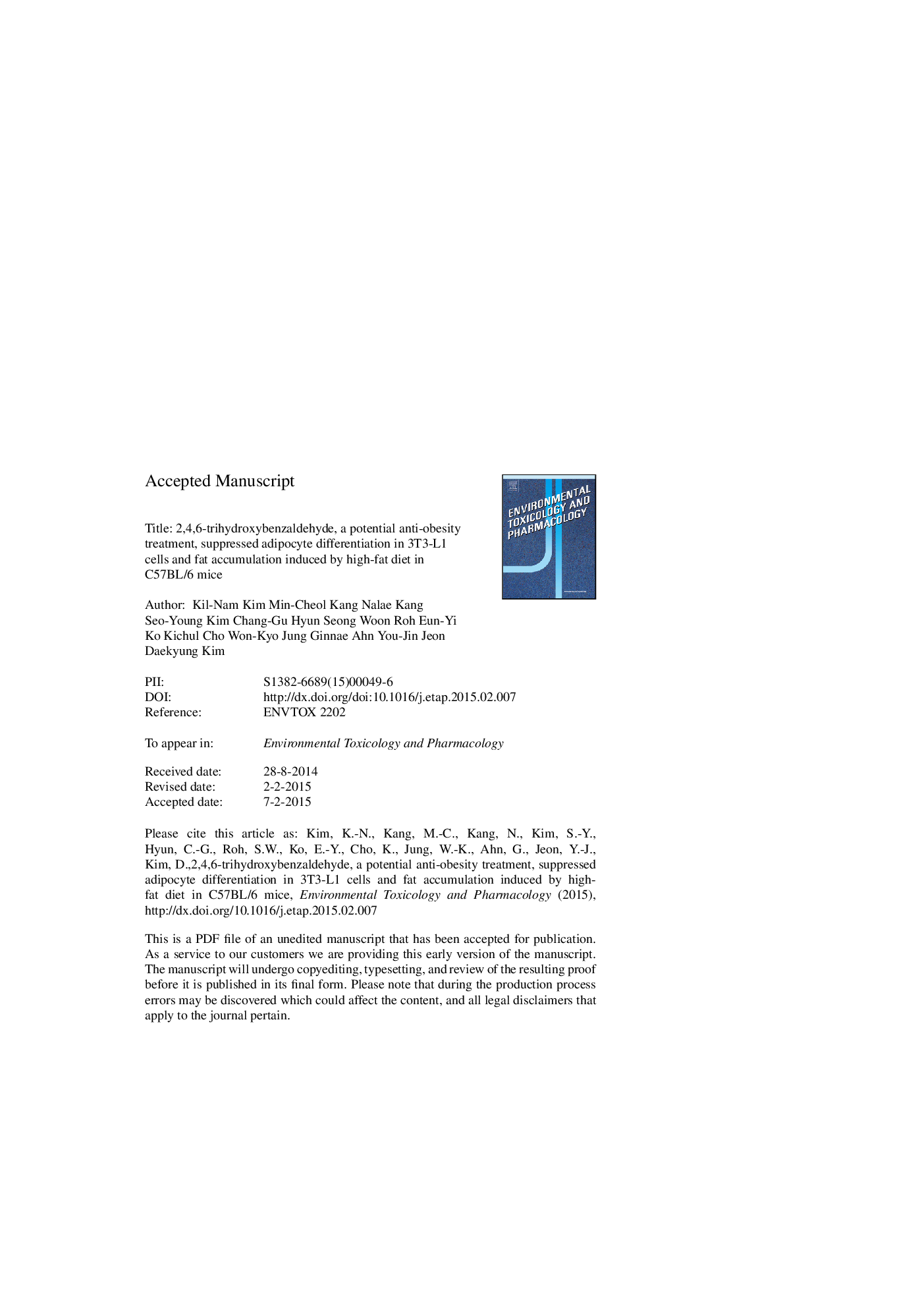| Article ID | Journal | Published Year | Pages | File Type |
|---|---|---|---|---|
| 5848875 | Environmental Toxicology and Pharmacology | 2015 | 23 Pages |
Abstract
In the present study, 2,4,6-trihydroxybenzaldehyde (THB) was evaluated for inhibitory effects on adipocyte differentiation in 3T3-L1 cells and anti-obesity effects in mice with high-fat diet (HFD)-induced obesity. Lipid accumulation measurement indicated that THB markedly inhibited adipogenesis, and this involved down-regulation of the expression of the adipogenesis-related proteins, CCAAT/enhancer-binding protein α (C/EBPα), peroxisome proliferator-activated receptor γ (PPARγ), fatty acid synthase (FAS) and sterol regulatory element-binding protein-1c (SREBP-1c), in 3T3-L1 pre-adipocyte cells. In a mouse model of HFD-induced obesity, oral administration of THB (5 and 25 mg/kg for 13 weeks) reduced the HFD-induced increase in weight gain. THB administration also reduced serum levels of glucose, triglycerides, and total cholesterol. A reduction in the hypertrophy of white adipose tissue was also observed. Furthermore, THB administration inhibited HFD-induced hepatic steatosis. These results provided evidence that administration of THB alleviated HFD-induced obesity in C57BL/6 mice and revealed the potential of THB as a nutraceutical to help prevent or treat obesity and the associated metabolic disorders.
Related Topics
Life Sciences
Environmental Science
Health, Toxicology and Mutagenesis
Authors
Kil-Nam Kim, Min-Cheol Kang, Nalae Kang, Seo-Young Kim, Chang-Gu Hyun, Seong Woon Roh, Eun-Yi Ko, Kichul Cho, Won-Kyo Jung, Ginnae Ahn, You-Jin Jeon, Daekyung Kim,
